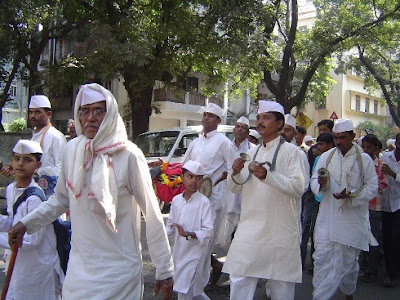 - By Janaki Krishnan
- By Janaki KrishnanIt is ten in the morning. I am stuck in a traffic jam near Sion Hospital. My house is just a two minute drive from here. But I get tense, for my dear friend's lunch will be delayed.
It is a daily ritual in my life. I make two balls of cooked rice, mix a little vegetable and curd, and place it on our compound wall. The very next minute, my winged friend comes swooping down and pecks at it. He is a small lean fellow, my friend Kaka the Crow. Very soon, eight to ten of his clan turn up. They stand one behind the other on the wall, in a neat queue. My friend moves away and allows them to eat. There is no rushing and fighting. One after another, they have their share and fly away. After they leave, my little friend comes back to have a second helping.
As against my friend's disciplined behaviour, my brother's feathered pal in Matunga is a spoilt brat. Unless the dahi is visible on the rice ball, he won't touch it. And only when my brother places the food on his outstretched palm does he come closer to take a look. Then, he perches on my brother's shoulders and enjoys his meal. But that's not all - every now and then, he must be served his favourite dish - potato curry. He also insists on home-made murukkus.
My Sindhi friend says he's not surprised about the murukkus. He feeds his crows sev. He said to me "Janki-ji, they love it. As soon as I throw a little sev on the ground, they come in large numbers cawing joyously"
Mumbai's crows don't have to depend on us to feed them, of course. The city's high rodent population offers them a regular supply of fresh meat. The fishermen's daily catch is yet another interesting source of food. In fact, the only problem our winged heroes have in the city is scarcity of accommodation. With the city becoming more a more a concrete jungle, like all Mumbaikars, the crows too must go to distant suburbs if they want to find safe, spacious and peaceful homes for their offspring.












